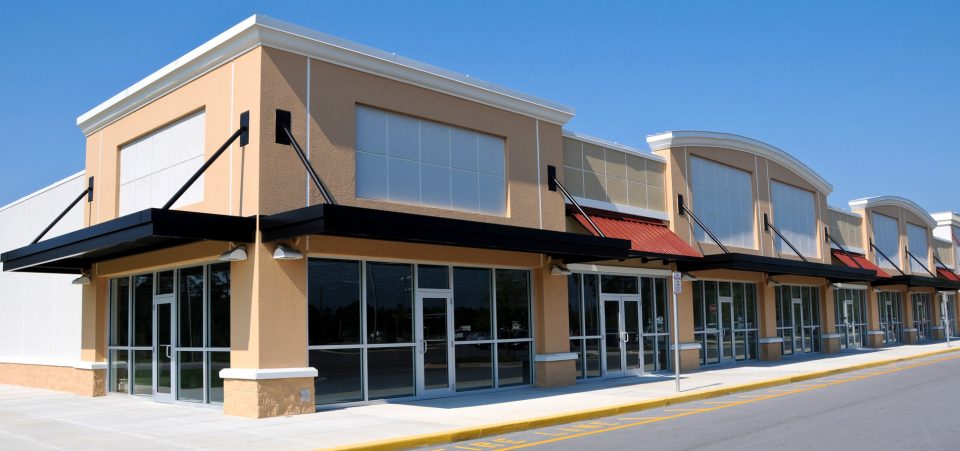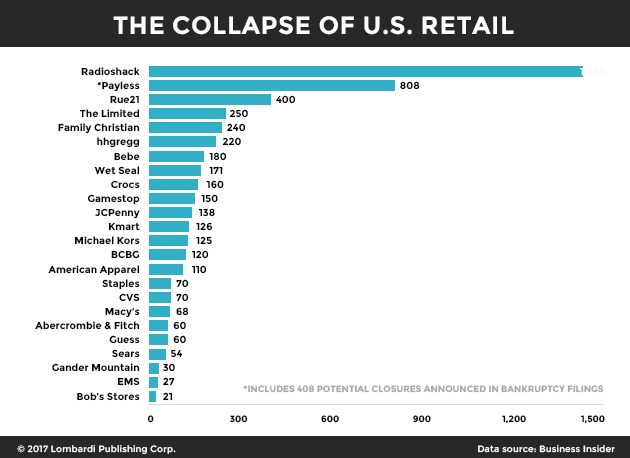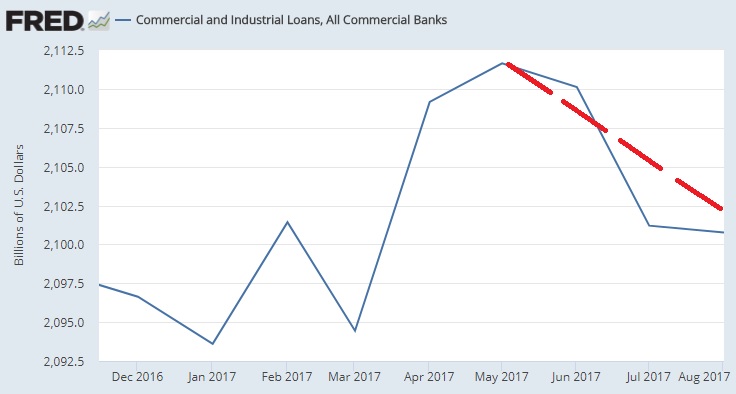Slowing Credit Demand Could Lead to Recession 2018
I have a message about retail real estate in the United States, and it’s nothing good. Rampant overcapacity could force prices down sharply and put pressure on demand for new project commercial credit. For an economy with not much give, it could be the domino that leads to “Recession 2018.”
The retail real estate glut in the U.S. is so bad that, according to billionaire Sam Zell, there’s four to five times more empty retail square footage per capita than in Europe. He compared investing in U.S. retail real estate to “catching a falling knife”. (Source: “‘This Is Not A Time To Buy Anything’ – Sam Zell Warns Retail Real Estate Market Is A ‘Falling Knife’,” Zero Hedge, September 26, 2017).
Certainly not helping retail’s cause is the massive growth of online retailer Amazon.com Inc. (NASDAQ: AMZN), which has led many established brands to go out of business. Already 19 U.S. retailers have filed for bankruptcy protection this year; by far the most since the Great Recession. (Source: “Here are the retailers that have filed for bankruptcy protection in 2017,” MSNBC, September 3, 2017.)
Toys “R” Us, Inc. is the latest victim, as stagnant revenues failed to produce enough free cash flow to continue operations. Management knows that, if the company can’t make it at this point in the business cycle, the next few years will be far more challenging. Some people might call it “quitting while you’re ahead”.
The revenue lost by brick-and-mortar retailers should be neutral to the overall economy, though. Sales are not disappearing altogether; rather, they’re mostly shifting to the online realm. Factor in the added business for the transportation industry, and it’s clear that retail isn’t the major economic drag here.
Commercial loan growth is a different story, however.
Commercial and Industrial Credit to Experience Negative Growth?
Commercial and Industrial (C&I) credit growth is the backbone of the U.S. economy. It funds big capital expenditure (CAPEX) projects, which aid in economic growth, and not just from the construction projects. The malls and factories that are built go on to produce lasting economic output.
When the C&I mechanism slows down, current and future economic output streams slow down in kind. Demand for eight- and nine-figure projects slows down throughout America. Retail malls are among the largest CAPEX projects to build, and they bring in billions of dollars in consumer discretionary spending and tax receipts.
Given the massive overcapacity in retail space, this growth engine won’t be reigniting anytime soon. Vacant real estate will take years to whittle away, perhaps a decade or more.
The impact of C&I growth on the economy can’t be understated. This statistic has helped predict the last eight U.S. recessions since 1960, making it among the most accurate predictors around. Currently, month-over-month C&I growth is just slightly growing overall in 2017. But it has declined over the past three months, giving some observers (like me) pause for concern.
Ultimately, the extreme levels of vacant commercial retail real estate aren’t something that can be worked off overnight. It will act as a headwind to C&I growth, and real estate investment trust (REIT) book values will be written down over time. This situation has the potential to usher in Recession 2018, should a general slowdown in consumption happen in concurrence.








